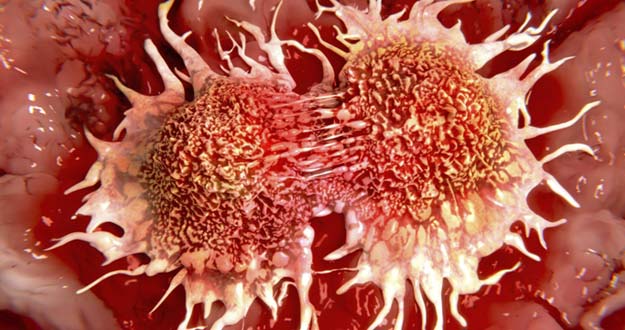I have found a very interesting news, that I should like to share with you. Here I am telling you about it.
A cell communication mechanism, based on physical laws, promotes metastasis in cancer. This emerges from a study of the Institute for Bioengineering of Catalonia (IBEC), driven by the Charitable Work La Caixa.
The discovery was made possible by the combination of nanotechnology, mathematics and molecular biology, and it represents a "revolution" because, they have said, that is the first time pt is tried to be understood how metastasis works, from the point of view of physics and biochemistry, as the lead researcher, Xavier Trepat, has explained.
The finding, published in the journal Nature Cell Biology, was presented Wednesday, at a press conference, with the Director of IBEC, Josep Samitier, and the Area Director for Science and Environment of the Charitable Work La Caixa, Enric Banda.
Through physical laws of forces, researchers have identified two molecules --E-cadherina and P-cadherina--, that are present, in more aggressive breast cancer, and they found that these molecules help cancer, to advance and conquer new tissue cells.

Cancer cells being divided
"These molecules act, as sensors, and give the cells the ability, to control the speed and distance of movement", a key element for metastasis, added Trepat, who stressed the importance of start researching cancer, from physical theories.
The growth and spread of tumors is due to a loss of communication between cells, which had been traditionally attributed to purely biochemical aspects: "This study calls into question this traditional view and works on the idea that physical communication, between cells, is as important as the chemical".
Researchers have used epithallial breast cells for the study, although Trepat has revealed that "most epithelial cancers surely follow the same physical functioning", so, he has encouraged, to do research, in this regard.
By the moment, the Trepat´s team has begun looking for therapeutic targets for the two molecules, discovered with the Center Research UK of London, with which they are investigating, in mice, what happens when you inhibit them.
Moreover, he has also explained that, the discovery, based on physical laws, "can have many applications, beyond cancer, such as Alzheimer's and many chronic inflammatory diseases", and he has stressed that, physics is equally important than the chemistry, in these processes.
Trepat has explained that, to perform this finding, the IBEC has made an application for a patent, for a technology, to measure forces of the cells, which they have been developed beside the Harvard University and that has let to discover that a cell made a force of nanonewton, an unit 100,000 times smaller than the weight of a mosquito.
In addition, the IBEC has had the support of the Universitat Rovira i Virgili (URV) and the University Politèchnic of Catalonia (UPC), which have developed new experimental strategies, to apply physical laws to cell function.
Well, I knew that physics was important in life; but, I could never imagine that, someday, someone would use it, to try to cure cancer. I am surprised and, from here, I want to congratulate the authors of this discovery. And, hopefully, this is a big step, finally, to put an end to this cruel disease.
Until my next post, kind regards,
Luis.
Sponsored by Costaluz Lawyers.
Please click below:
